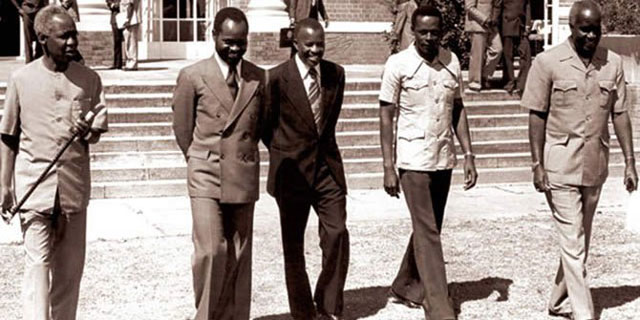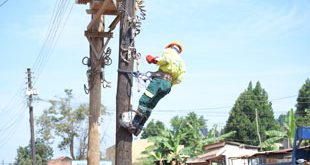
LSE’s Elliott Green examines the life and legacy of Botswana’s second President Quett Ketumile Joni Masire
COMMENT | ELIOTT GREEN| LSE BLOG | Quett Ketumile Joni Masire, President of Botswana from 1980 to 1998, died late on 22 June 2017 at the age of 91. Masire is by no means a household name, even among scholars of Africa, yet he deserves to be remembered as one of the greatest African leaders in post-colonial history, for three reasons.
First and foremost, Masire responded very capably to a seven-year long drought in Botswana that began the year after he took office, which is the country’s longest drought in recorded history and which led to a drop in per capita foodgrain production from 58kg in 1980/81 to only 7 in 1983/84.
Botswana’s drought coincided with ones in Ethiopia and Sudan which attracted far more attention since they contributed towards famines that killed hundreds of thousands of people. In contrast, there is no evidence of any deaths in Botswana due to famine under Masire’s watch, largely because of his pro-active Labour Based Relief Projects that focussed on creating jobs on such projects as constructing dams, planting gardens, digging trenches and building fences and houses.
His government provided food supplements for children – which was distributed only at schools for school-aged children, thereby encouraging higher school enrolment – as well as for the destitute, disabled and elderly, meaning that some 45 per cent of the population received food relief at the height of the famine in 1984.
The drought also coincided with a national election in 1984 where members of Masire’s ruling party ran on their ability to provide food relief and at least some claimed (falsely) that the food relief came from the coffers of the party rather than the state.
Indeed, as one opposition candidate said at the time, “how do you convince a man that he should vote for you if he has a bag of food in front of him?”
READ FULL COMMENT (click here)
Frmr #Botswana President Quett Masire deserves to be remembered as one of the greatest post-colonial African leaders https://t.co/HEuXxyqIZ0 pic.twitter.com/edYWyInZRl
— Africa@LSE (@AfricaAtLSE) June 26, 2017
 The Independent Uganda: You get the Truth we Pay the Price
The Independent Uganda: You get the Truth we Pay the Price




And Botswana is reported to be one of the most peaceful countries on the continent. Botswana’s GDP per capita also ranks highly in Africa, thanks to the stability and good governance – to which Ketumile Masire (RIP) contributed significantly. He ought to be celebrated in the same league as Mwalimu Julius K. Nyerere and Nelson Mandela. African leaders of this generation should also look to his legacy for inspiration and try to emulate him too.
Masire was a great Mann indeed